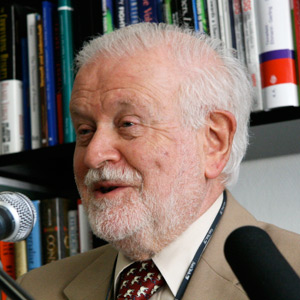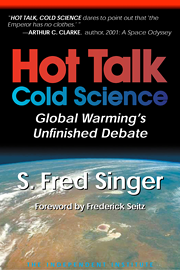In his State of the Union address, President Obama again confirmed that “saving the climate” remains one of his top priorities. Yet the recently concluded confab in Lima, Peru, didn’t really conclude anything—certainly no binding protocol to limit emissions of carbon dioxide—but “kicked the can down the road” to the next international gabfest in Paris, scheduled for December.
Recall, however, that in July 1997, the U.S. Senate passed the Byrd-Hagel Resolution against a climate protocol by unanimous vote. Democratic Sen. Robert Byrd wanted to protect West Virginia coal mining; Republican Sen. Chuck Hagel wanted to protect the United States from unfair competition. A direct consequence of this bipartisan resolution was that Clinton-Gore never submitted the infamous Kyoto Protocol to the Senate for ratification. Kyoto was designed to put teeth in the United Nations Framework Convention on Climate Change, popularly known as the Rio Global Climate Treaty of 1990).
Kyoto expired in December 2012, after wasting literally hundreds of billions in 15 years—without accomplishing its main goal of reducing global emissions of the much-maligned greenhouse gas carbon dioxide. On the contrary, emissions rose—mainly from greatly increased industrial growth in China, which was fueled primarily by coal-fired power plants. At the same time, of course, global agriculture benefited from these higher levels of carbon dioxide, which is a natural plant fertilizer. The starving of the world really owe a vote of thanks to China.
In November 2014, President Obama and Chinese President Xi Jinping inked an agreement that Mr. Obama thinks might lead to anotherKyoto; it was hailed as an “important breakthrough.” However, while the United States would have to cut carbon dioxide emissions drastically over the next decade, China merely promised to peak its emissions by 2030—maybe—but would be free to continue its industrial development, at our expense. It’s a bad deal for the United States; energy would become super-expensive, stifling economic growth, forcing industry to flee, and killing productive jobs—all of the calamities that Mr. Hagel, back in 1997, feared might happen.
Mr. Obama’s war on coal is indeed making electricity prices “skyrocket”—just as he promised in 2008 when he ran for president. Voters were beguiled by the vision of “slowing the rise of the oceans” and of “saving the climate.” Little did they realize that they were being fed nonsensical science and that high energy prices would instead lead to growth of poverty. Had they had the good sense to look at the European experience, they might have rejected Mr. Obama’s siren song. Blame, if you will, the mainstream media, TV, Hollywood, Greenpeace and the Sierra Club. President George W. Bush could have saved the situation but he didn’t.
Here is a great opportunity for Mr. Hagel to save the U.S. economy. Who else can boast of early opposition to Kyoto? He is no longer bound to silence as a member of Mr. Obama’s Cabinet. Free to speak out, he has much going for him.
We now have a Congress anxious to take on a lame-duck president on constitutional issues. The courts are becoming skeptical of executive overreach. Public anger is rising toward the hated Environmental Protection Agency, Internal Revenue Service and Department of Justice; the public is also turned off by foreign policy disasters like Benghazi, and afraid of terrorism within the United States. Finally, we also have a clear majority of states with like-minded governors, attorneys general and legislatures—disinclined to support any international ventures, especially through the United Nations.
More specifically, on the climate-energy issue, Mr. Hagel can point to increasing evidence that nature rules the climate—and always has—not human activities. He can point to the disastrous record of Kyoto and scandalous waste of resources and human efforts—and how “saving the climate” detracts from solving genuine world problems.
We can learn from the sad experience of Europe, with its rapid rise in energy costs, leading to industry flight and job losses—all caused by destructive energy regulations based on nonvalidated science. We know of the shoddy science of the United Nations Intergovernmental Panel on Climate Change, exposed in independent Non-governmental Panel on Climate Change reports; the conspiracies documented by emails of “Climategate” and subsequent whitewash efforts—and finally, the 18-year “pause” in global warming and failure of Intergovernmental Panel on Climate Change climate models to explain it.
That is why we must strongly oppose creating a second Kyoto in Paris in 2015—with the active assistance of India, Japan, Australia and Canada, who all share our doubts.









